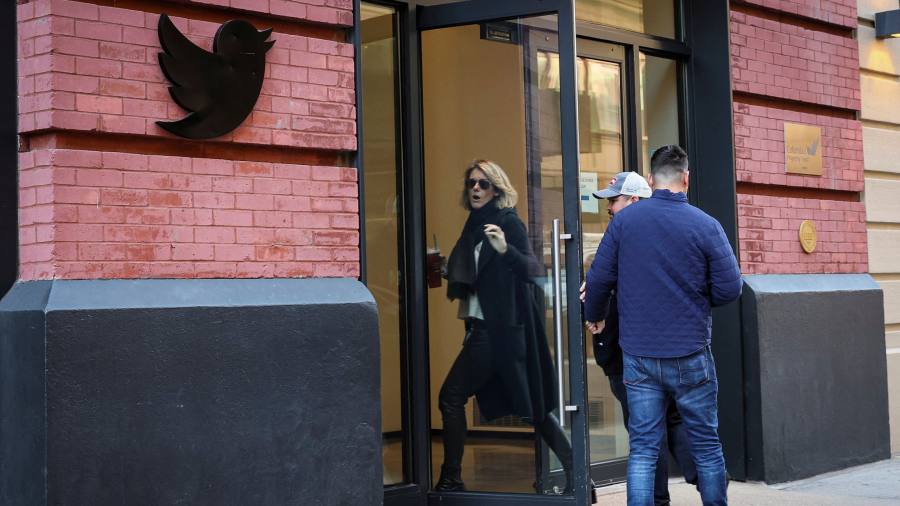
Elon Musk has banned remote work at Twitter in his first email to staff since buying the company, warning that the social media platform needs “intense work” in the office to turn round its fortunes.
“The road ahead is arduous and will require intense work to succeed,” he wrote in a company-wide email sent to employees on Thursday morning and seen by the Financial Times.
“We are . . . changing Twitter policy such that remote work is no longer allowed, unless you have a specific exception.”
Employees must be in the office for a minimum of 40 hours per week, except for those “physically unable to travel” or with “a critical personal obligation”, according to the email.
Musk added that he would review and approve any exemptions to the policy himself, instructing managers to compile lists of any staff seeking to continue remote working.
The new policy at Twitter matches Musk’s demands at another company he runs, Tesla, where in June he insisted staff should turn up for work at least 40 hours a week in the office, or find new employment.
The email to Twitter employees, which was first reported on by Bloomberg, was the first they have received directly from Musk since his $44bn takeover of the social media platform. Musk has instead used his personal Twitter account to publicly brainstorm new initiatives and products for the company.
The move has been received with frustration by some staff who moved further away from the office during the pandemic and are now faced with long commutes, said two former Twitter employees.
Former chief executive Parag Agrawal had said in March this year before Musk offered to buy the company, that staff could work from home “full-time forever”.
3) Wherever you feel most productive and creative is where you will work and that includes WFH full-time forever. 4) Distributed working will be challenging. We’ll need to be proactive, intentional, learn, and adapt. 5) Thank you to the team who has supported us every day.
— Parag Agrawal (@paraga) March 3, 2022
One Twitter employee said: “It’s not a massive surprise given how he does things at other companies. [The] manner of the comms and the lack of notice haven’t helped bring people with him.”
Bruce Daisley, Twitter’s former European vice-president, said: “It is an easy management mistake to conclude that employees working from home are less productive or collaborative than those in the office . . . [but] remote workers work more, not less. Generally when we feel like we can sustain a better work-life harmony, we find ourselves happier in our jobs. Musk might find that his team end up more frustrated by this additional jab at them.”
Musk began slashing the company’s 7,500-strong workforce last week “in an effort to place Twitter on a healthy path” as he warned that the platform had experienced a “massive drop in revenue” since his takeover was completed.
Musk has also asked staffers to work round the clock on new products including a subscription charge for users to get access to a blue tick on their profile, as well as features such as the edit button.
Twitter’s new office rules put it at odds with its social media rivals, who all have flexible working in place. At TikTok, staff were asked to return to the office for at least two days a week from September this year, while Meta, which owns Facebook and Instagram, has encouraged remote working, with several top executives based away from the company’s headquarters.